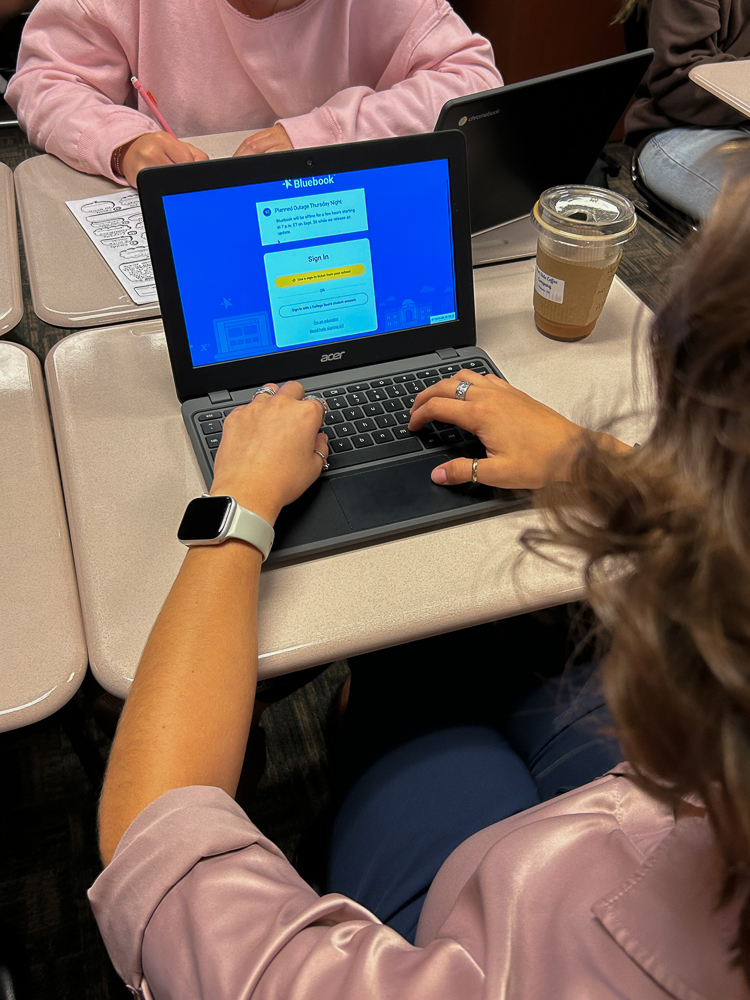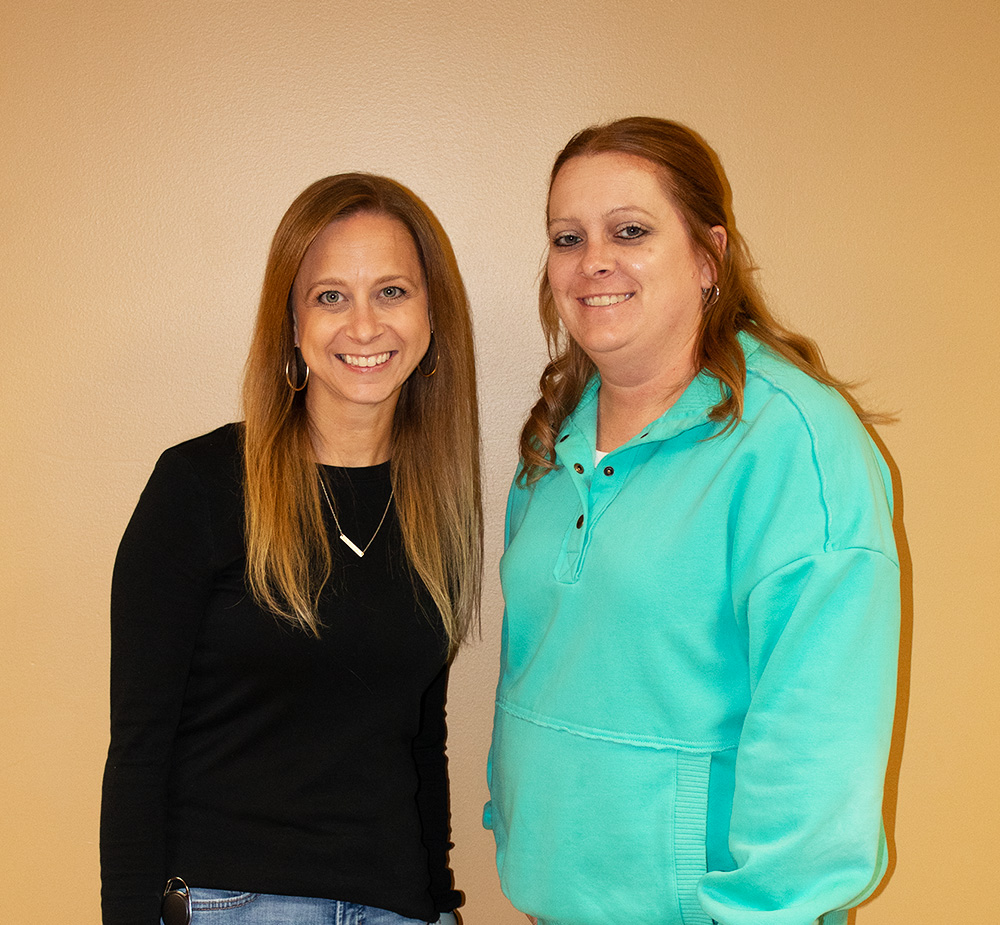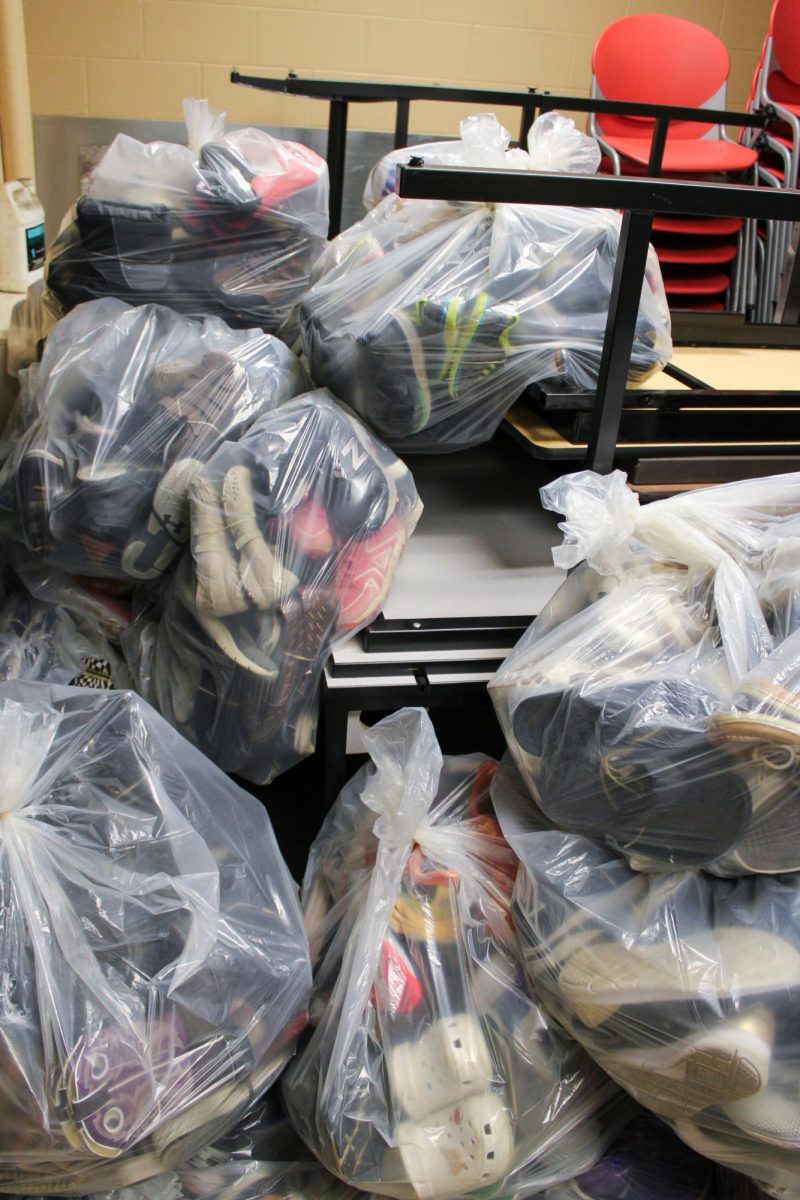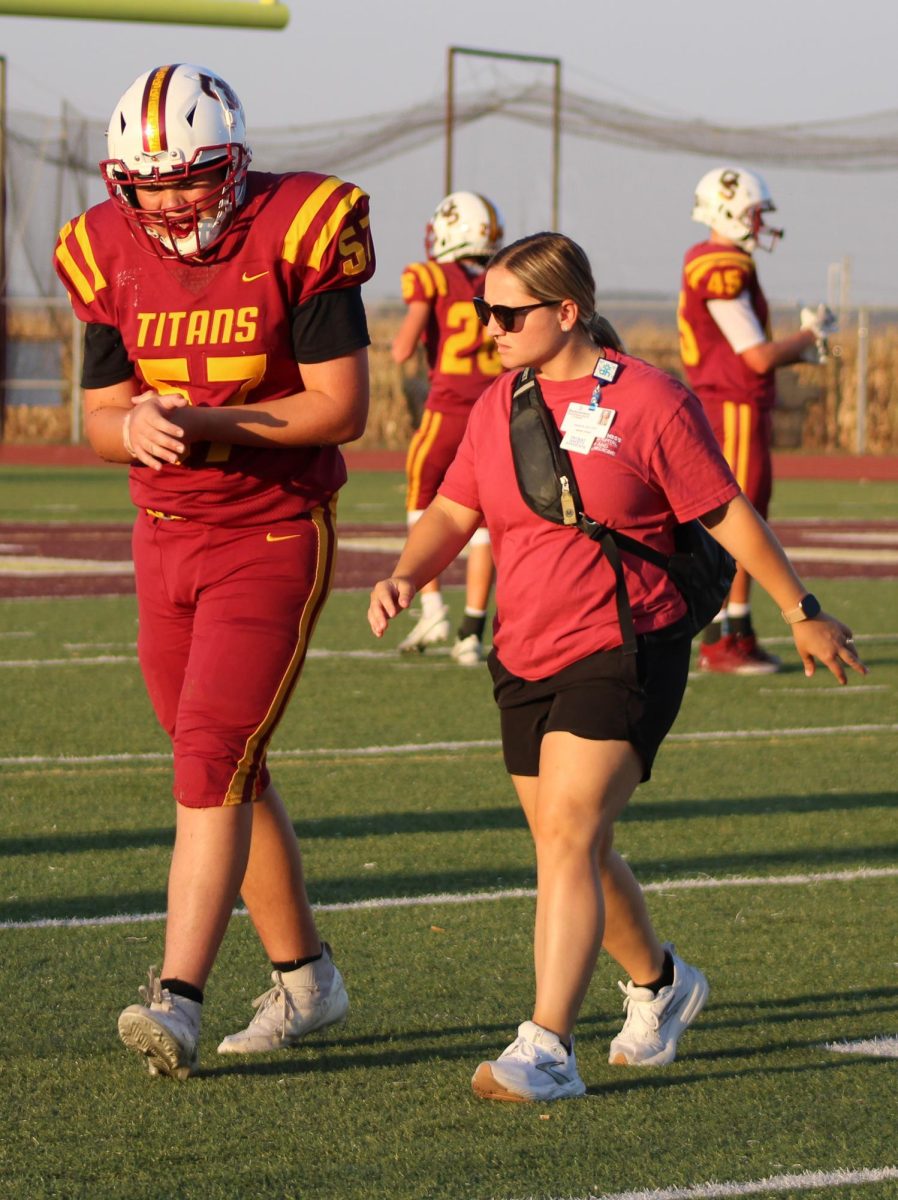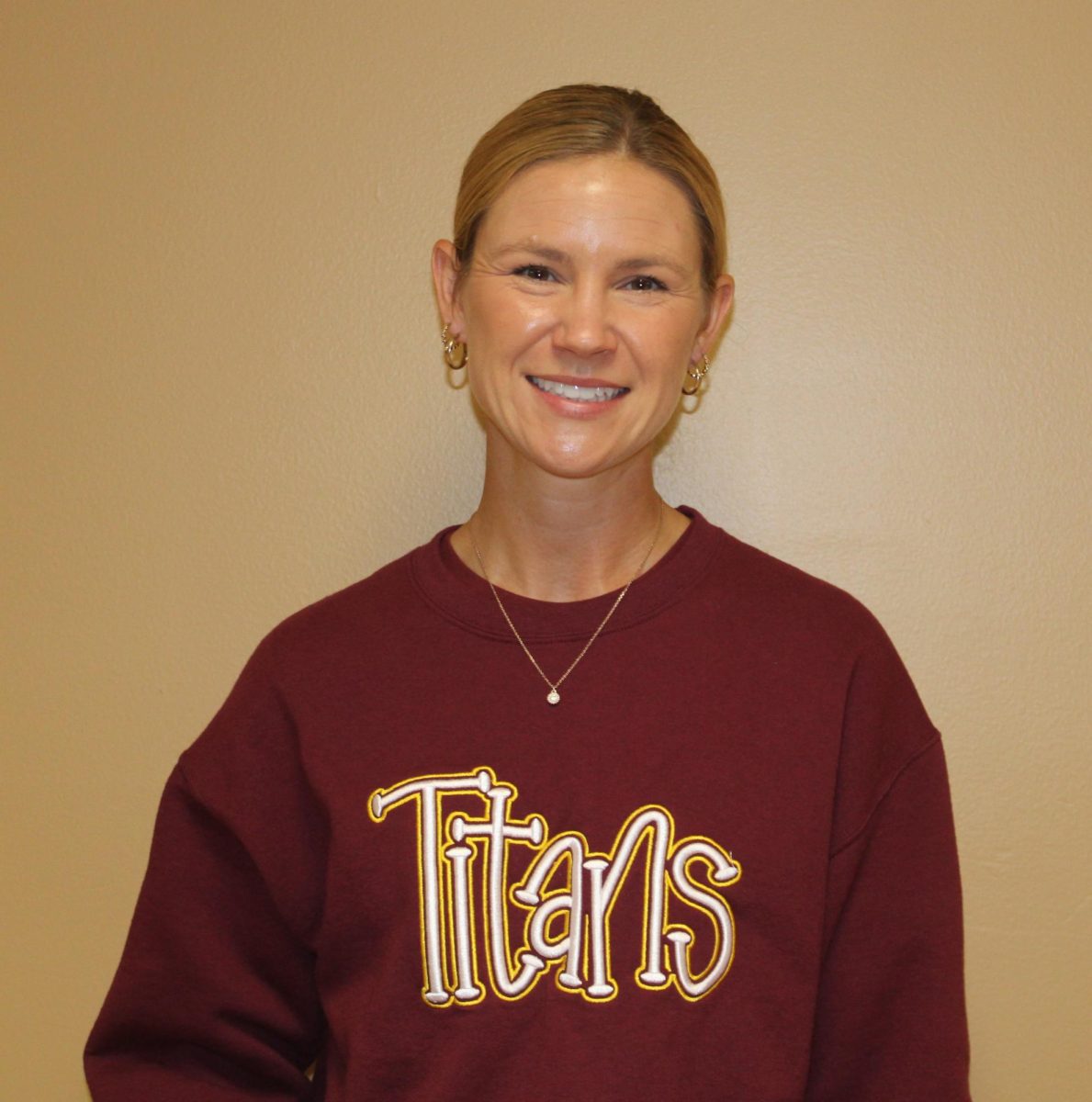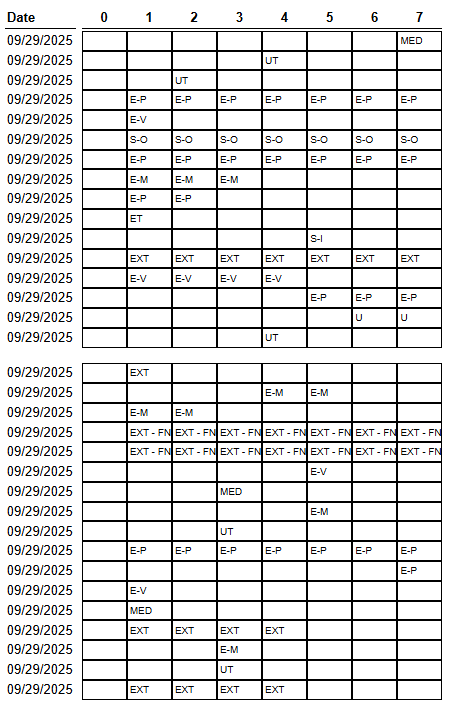According to the College Board, 28 AP exams will officially transition to a digital format in May 2025. The College Board is the organization that administers the PSAT, SAT and AP classes. This change follows the SAT’s transition from paper to digital in the United States in 2024. Previously, the AP exams have been given on paper, with students receiving both a question booklet and an answer booklet. Moving into a digital format, some subject tests will be completely online and others will have online questions and paper answer booklets. The subjects with paper answer booklets are those that require students to draw out graphs or symbols as part of a free-response answer. The online tests will be administered through the same application that the SAT was administered, a program called Bluebook. The decision was announced in July 2024 by the head of the Advanced Placement Program.
This decision will impact four of Gibson Southern’s five AP classes that are in session for the 2024-2025 school year: AP Calculus, AP Environmental Science, AP Chemistry and AP Physics. AP Computer Science will not face any change this year due to already having transitioned to digital in the 2023-2024 school year.
“There was some talk about it last year, and we could opt in for digital exams,” said Gibson Southern guidance counselor Kelley Asay, who administers the AP exams for Gibson Southern. “We did end up doing that for AP Computer Science last year because it is pretty much an all-digital class anyway. I know they (College Board) have been moving to digital testing. The setup is the same as what we did for the SAT and PSAT, so I think as that has become more commonplace and pushed through everywhere else, they’ve just been slowly adding that to the rest of the tests they administer.”
This decision was somewhat abrupt, as it followed a security breach in the May 2024 AP exams. Certain AP exams were leaked on the internet, which caused a scandal as the College Board had to determine whether or not certain students cheated. Moving the exams to a purely digital format is supposed to increase their security and integrity, according to the College Board.
“I think it was just done really hastily because of the cheating scandal,” said Jane Toth, Gibson Southern AP Environmental Science teacher. “I know there are at least three different versions of each AP subject test. I don’t know if it was all three of them, but at least one of them was for sale on Reddit before the exam was given. Like, someone had to of leaked it. I don’t know how they (College Board) determined who bought it, but they threw out thousands of scores.”
Most of the aspects of the AP exam will remain the same in the transition. The questions asked on the exam, time given to students to complete the exam and the basic rules students must follow during testing are not reported to face any changes. The main change will be the visual appearance and format of the exam since it will switch to a digital version.
“I do not believe the questions will change other than in appearance,” said Kyle DeBord, Gibson Southern AP Chemistry teacher. “I’m not sure it will necessarily be more difficult, but it will definitely be different because the questions will be posted on a screen, and the students will produce answers in a booklet.”
On the administration side of it, a digital exam is simpler for those responsible for giving the exam to AP students.
“I actually think for the digital exams in terms of administering from my end, it’s actually simpler and quicker,” Asay said. “When it was paper and pencil, you have to account for every single book that you have. You have to basically organize them, and there are usually multiple books for each test, so there’s just a lot of counting, recounting, stacking, sorting and you know, making sure that it’s all there. You have to ship that all back, which takes time. The instructions are really long when you read through all that. With it being digital, it’s just a matter of having test tickets available for them, and the instructions for me as the administrator all come through online, just like when we did the SAT and the PSAT last year.”
Most AP teachers are not making immediate and sudden changes in their classrooms to accommodate for the change and prepare their students for a digital format. Gibson Southern’s AP teachers are likely to start implementing more online content, practice and tests, in the second semester of the 2024-2025 school year.
“There’s so many other things to get used to,” Toth said. “I’m not going to try to start testing them digitally until second semester. I figured from January through April, if we do those tests successfully on a computer, then they can be prepared for the actual test.”
Like Toth, other AP teachers have similar approaches.
“I have always given paper tests in years past,” said
Many teachers will be utilizing College Board’s AP Classroom as they have every year. However, College Board is adapting AP Classroom to look visually identical to Bluebook, providing students with a way to get used to the digital format. Teachers will be able to use this to better prepare their students.
“My students already use AP Classroom, which is an online platform that provides instructional resources for AP courses to support student learning,” said Diane Nurrenbern, Gibson Southern AP Calculus teacher. “College Board is doing a nice job of updating this to mimic Bluebook.”
Most teachers and administrators feel confident in the ability of students to be able to navigate the digital format well.
“When it all first started, I think teachers and administrators had a lot of concern about how hard it was for kids to focus on these computers while they’re taking tests,” Asay said. “But again, I think that’s just such a part of the normal practice anymore, that it’s not a big deal for you guys.”
While most do believe that students will be able to navigate it well, some teachers simply just do not believe that testing digitally is in the best interests of students regarding their performance. Most teachers prefer a paper and pencil test rather than a digital one, believing that students perform better when testing on paper.
“I think in my experience with teaching overall, students perform better on tests from their own paper, so that part concerns me,” Toth said. “It’s too easy to click through screens.”
Knaebel echoed Toth’s sentiments.
“I think it is a disservice to our students,” Knaebel said. “Math and science questions are best thought through and completed by working, writing and sketching on paper. When you give students a question on a screen, they immediately want to just think about it and don’t write. And, they tend to do it wrong. That is also why I want to make sure and utilize screen tests second semester, to help prepare them for that experience. I also hope that since the PSAT and SAT have gone digital the last couple of years, students are becoming more comfortable with it, and are still using their tools of paper and pencil rather than just thinking.”
Nurrenbern has similar worries as Toth and Knaebel. However, she has more confidence in College Board’s scoring procedure and worries less about student scores being impacted.
“Personally, I always prefer paper [and] pencil,” Nurrenbern said. “Since the students are already familiar with Bluebook, I don’t feel like they will have any issues navigating the test. I don’t believe scores will be impacted because the College Board evaluates exam scores across different administrations and statistically adjusts scores based on difficulty. This ensures that the same standards are applied across administrations regardless of how students are tested.”

